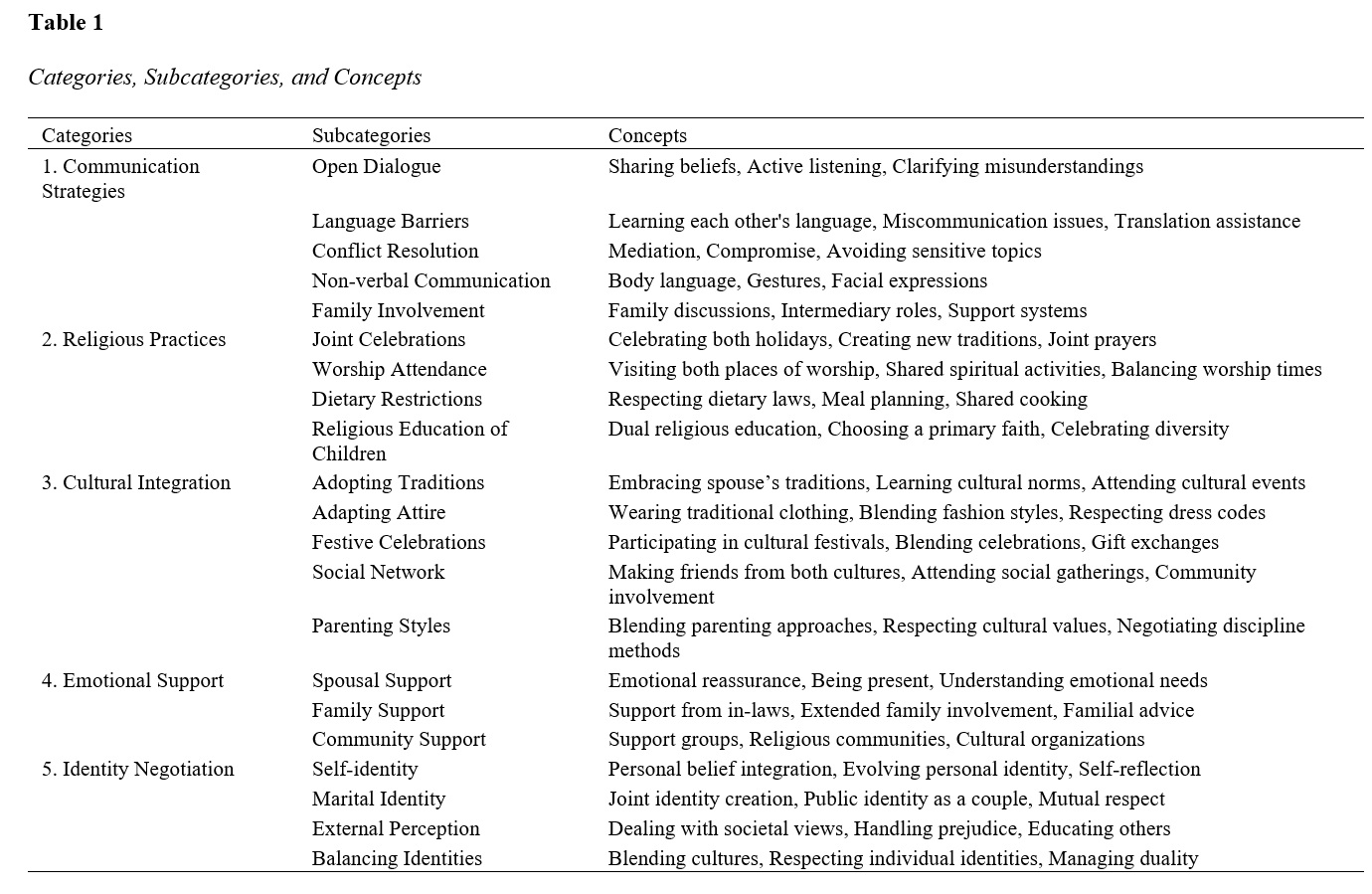Exploring the Role of Cultural Adaptation in Interfaith Marriages: A Qualitative Study
DOI:
https://doi.org/10.61838/kman.jprfc.2.4.4Keywords:
Interfaith marriage, cultural adaptation, qualitative study, communication strategies, religious practices, cultural integration, emotional support, identity negotiationAbstract
Objective: The objective of this study is to explore the role of cultural adaptation in interfaith marriages, focusing on how couples navigate religious differences, integrate cultural practices, and manage identity negotiation.
Methods: This qualitative study employed semi-structured interviews with 20 participants who have been in interfaith marriages for at least three years. Participants were selected using purposive sampling to ensure diversity in cultural and religious backgrounds. Data were collected until theoretical saturation was achieved and were analyzed using NVivo software. Thematic analysis was conducted to identify key themes and subthemes related to communication strategies, religious practices, cultural integration, emotional support, and identity negotiation.
Results: The analysis revealed five main themes: communication strategies, religious practices, cultural integration, emotional support, and identity negotiation. Couples employed various communication strategies such as open dialogue, conflict resolution, and non-verbal communication to bridge cultural gaps. Joint religious practices and celebrations, as well as respectful handling of dietary restrictions, were crucial in fostering mutual respect. Cultural integration was facilitated through adopting traditions, adapting attire, and engaging in social networks. Emotional support from spouses, families, and communities played a significant role in maintaining marital stability. Identity negotiation involved balancing individual and joint identities, dealing with societal perceptions, and educating others about their interfaith marriage.
Conclusion: The study underscores the complex and nuanced strategies interfaith couples use to navigate cultural adaptation. Effective communication, mutual respect in religious practices, cultural integration, emotional support, and identity negotiation are critical for the success of interfaith marriages. The findings highlight the need for supportive legal frameworks and societal acceptance to facilitate the thriving of interfaith unions. This study contributes valuable insights into the broader processes of cultural adaptation and integration in a globalized world.
Downloads

Downloads
Additional Files
Published
Issue
Section
License
Copyright (c) 2024 Yoko Wong (Corresponding Author); Xian Seng Neo (Author)

This work is licensed under a Creative Commons Attribution-NonCommercial 4.0 International License.







